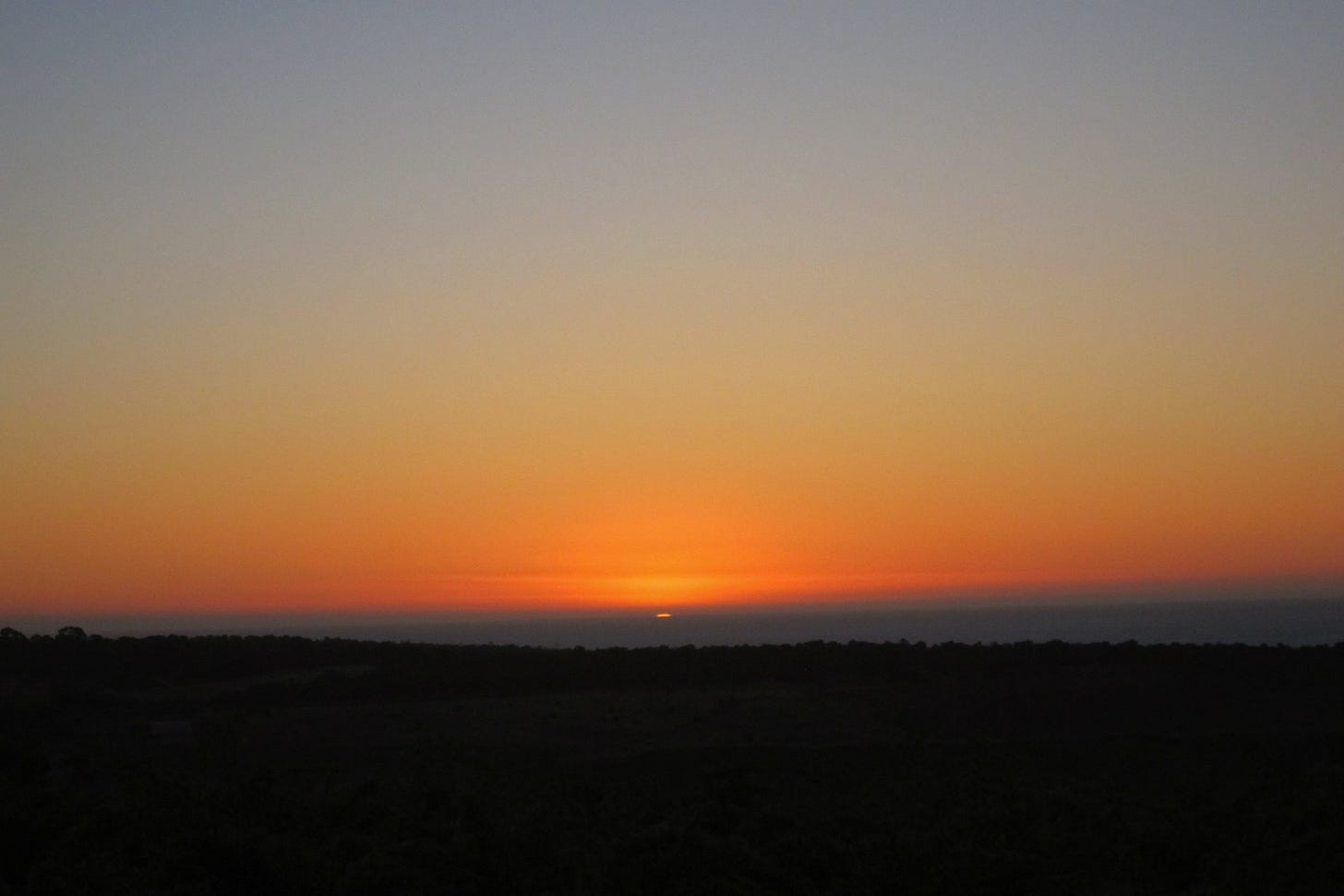Note: You can start reading here or anywhere, then go back. See Table of Contents. Come in the middle? Robert is the narrator who discovers after his wife Lena has died that she had a lover, Isaac. Evan is Isaac’s wife. Robert is on a search for how he lost Lena: He’s creating the story through memory, invention and a search for the truth and his role in what happened—and by stalking Isaac.
Lena’s Baby
Lena could see Evan in the garden, feel her own hand on the petals of a red poppy, and hear the words from the psalms, whose wisdom chided her, spill out, interrupt her conversations the way a parent reprimands a child in the midst of mischief: “A blossom drops in the ripening of grapes.”
And here she stood on her balcony while Isaac’s figure receded over and down the hill, and though she knew he went to the road where he’d left his truck or his car, he seemed, because the hill’s horizon lay against the woods, to disappear into the trees like the forest sprite she’d read about when she was a child.
The scar inside her drew her inexorably toward him, but if he knew, he’d find his way away. He’d taken her to the house, stayed until Evan came so that he could show her that he needed to find that way.
Her baby. She’d thought she could clear it away.
Gone, the way her mother scrubbed the kitchen floor with the clean white rags that turned gray and that she tossed down to the basement to wash later. The floor was blue and white linoleum in long uneven, mixed-up lines of color that ran together, simulating a dark night-clouded sky. Lena played jacks on that floor in front of the white, spotless, glistening refrigerator and stove.
Clean is what she’d hoped for after the scraping and cleaning, the removal of her egg, of his seed, their baby, the excision that left the scar inside her.
She was sure she could feel it in the same way she knew what she deserved and what she didn’t, in the way she could hear her parents’ voices long after she was grown, long after they’d both died. Both had given comfort and correction and she vacillated between these as if she were flying low on a street in Bolton Hill in Baltimore where four-story brownstones line narrow streets, where windows slammed shut to correct her on one side while, on the other, windows opened and arms reached out to her. She wondered if she’d ever be forgiven. What’s done is done. Yes, she knew that. But she also knew that reparation is inseparable from goodness if she could ever figure out what that word goodness meant.
She heard her father, “Rainbows happen with the sun at your back” when she was seventeen and in that adolescent bleak night of sadness—the cause, an indefinable recollection like a nightmare, the something-missing wrapped in fear when we wake. He’d taken her to Liberty Dam, at that time a park with its wall of water on the outskirts of Baltimore. He’d simply stood beside her while she’d cried and said, “If you look in the sun, you’ll never see one.”
She wouldn’t find the way by looking through. She would find it by looking askance.
That is what I do here.△
Lena Turns to Evan, chapter 13, next
Table of Contents
Love,





The floor was blue and white linoleum in long uneven, mixed-up lines of color that ran together, simulating a dark night-clouded sky. - love this, Mary.
That last line took my breath away. Do you know the Emily Dickinson poem about telling the truth but telling it slant?